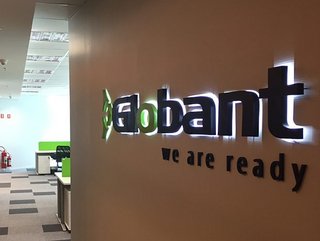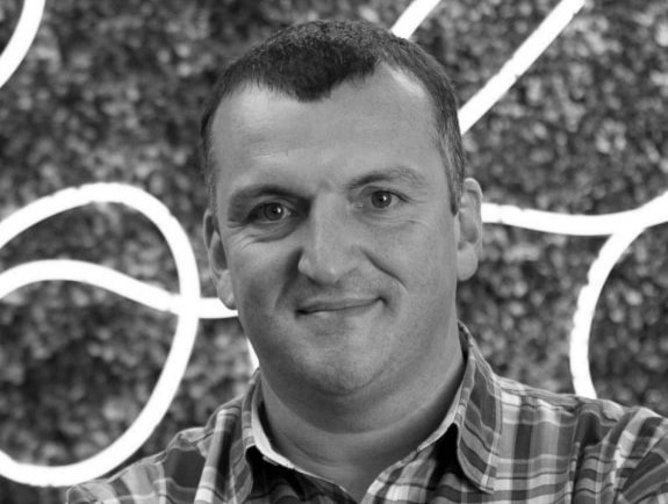How Globant uses AI for the metaverse and sustainability

In your own words, tell me about your company, your role and your responsibilities?
One evening after work in 2003, I got together with three of my friends at a pub in Buenos Aires. Our native Argentina had just gone through the worst economic meltdown in its history. The four of us wanted to reinvent ourselves and start something new. We saw a huge opportunity in the IT services industry and we knew that there was a huge talent pool in our country and our region. We decided that we were going to aim to become a leader in IT services, from Latin America to the world. We jotted down our business plan on a beer-soaked napkin, and Globant was born.
Today, 19 years later, we’re a digitally native company focused on reinventing businesses through the latest technology. We’re a team of more than 21,000 professionals working in 18 countries worldwide.
We effectively organise our company into smaller operating units, which we call the studio model. Each studio represents deep pockets of industry expertise, the latest technologies and trends and delivers tailored solutions focused on specific challenges. It fosters creativity and innovation while allowing us to build, enhance and consolidate expertise around various emerging technologies and industries. We have two different types of studios: Reinvention and Digital.
Our Reinvention Studios were crafted to revolutionise specific industries. We focus on helping our clients be the disruptors of their own space and to embrace a sustainable future. To do so, we deliver digital and cognitive reinvention with a cross-industry approach that aims to reinvent our customers' businesses, operations and technology. Our Digital Studios focus on developing business models and technical capabilities on the latest technologies and trends to help our customers with their digital transformation, digitising processes, experiences, even their relationship with their stakeholders.
As Globant’s CEO, I have always been relentlessly focused on making the company grow. With the team, we drove the company from a small start-up to the first Latin American software company to hold an IPO on the New York Stock Exchange in 2014. And since then we kept growing steadily.

Can you tell me about your BeKindTech Fund and any other initiatives Globant has that look to overcome challenges in the industry?
The BeKindTech Fund was born to tackle the misuse of technology. We are passionate about what we do and see technology as a tool for good, and we want to work to reduce the negative societal effects when it’s abused or misused. The doom scroll on social media, excessive screen time late into the night, or the dangers of texting and driving are all examples. That’s why we created this fund specifically tasked with funding, mentoring and supporting startups with business propositions that directly focus on these and other problems that our society faces. We’re starting with USD 10 million in investments ranging from the seed stage to Series A funding.
Additionally, recently we expanded our ESG commitments with new goals for our Be Kind Program, a global strategy that unites positive impact programs for all of its main stakeholders and consolidates initiatives to tackle critical issues, such as DEI, climate change, and ethics in AI, among others. Be Kind operates under four key pillars: “Be Kind to Yourself,” “Be Kind to your Peers,” “Be Kind to the Planet,” and “Be Kind to Humanity.”
For Be Kind to your Peers, initiatives to promote Diversity, Equity and Inclusion, we have the objectives that 50% women and non-binary people in management positions and Grant coding scholarships to 15,000 people by 2025.
For Be Kind to Humanity, initiatives to support humanity’s evolution through technology, we developed Be Kind Tech Fund (mentioned previously).
For Be Kind to the Planet, initiatives to fight climate change, we have the objectives of carbon neutrality and reduction trajectories in line with the Science-Based Targets Initiative’s standards aligned with the Race to Zero Initiative. Also, we will save 10 million tons of Co2-eq by 2030 by supporting our clients with “Digital Sobriety” techniques while designing their digital services and products.
And lastly, for Be Kind to Yourself, initiatives to promote wellness at work, we have the objective that 100% of globers worldwide benefit from a comprehensive wellness plan.
Also, we have other programs like Women That Build, which recognise trailblazing women in the tech sector. We hope to foster a community of support among women in the tech sector, whether it is by inspiring young girls to study the STEM fields or mothers who are considering returning or expanding their professional careers in the industry. On the other hand, Code your Future aims to reduce this training gap through educational opportunities for our region’s young talent through scholarships. 80% of the allocated scholarships focus on women working to reduce the gender gap in the IT industry.
Why is sustainability important to your company and how do you think AI and technology could help you achieve your goals?
As a tech company, we have the opportunity and the responsibility to apply what we do to positively impact the planet. We all need to commit to this cause, being kind to future generations. We have engaged in practices for lowering energy consumption and reducing disposable waste. Since 2012, we have been measuring Scope 3 emissions and reflecting them in our Integrated Reports, and since 2020, we’ve been using 100% renewable energy.
In 2021, we became a carbon-neutral company and signed science-based targets to reinforce our mission to fight climate change. Our efforts to become a net-zero company align with our purpose of making the world a better place. To raise awareness inside of the organisation and make the carbon-neutral milestone a shared achievement, we invited all employees worldwide to be part of the global commitment and choose among the following offsetting projects they want to compensate their working carbon footprint: Bajo Calima y Bahía Málaga (Colombia), Brazil Nut (Peru), Kootznoowoo (US, Alaska), GreenTech (Romania), and Wind Power Project (India).
We believe that through the use of technology, we can transform the way people live and reinvent all industries, and in that sense, AI will be instrumental in bringing those goals to life. When we look at what the sustainability imperatives mean, we can very quickly relate them to avoid wasteful activities, help make better choices, and improve our understanding of the consequences of our actions. AI is an excellent tool to do precisely that, and on top of that, AI can do so at scale. In a digital world, the stage is set for applying AI seamlessly as well.
Are there any other ways in which Globant utilises AI technology to improve its operations?
We use AI all-around to help our clients reinvent themselves.
For instance, through our Augmented Coding initiative, we have created AI-powered tools and assets that enhance the coding experience, generate higher quality code, enable faster ramp-up times for developers, accelerate time to production and more accurately traverse complex coding environments.
Another example is using AI to change the way software testing works, with augmented testing, a product that leverages the power of artificial intelligence to improve and simplify the quality assurance, designed to enhance the product’s quality, helping to develop a testing strategy aligned with product requirements, design and development.
Beyond the “technology on technology” approach, we also use AI to augment the way we manage talent, from scouting, interviewing, discovering skills, managing recognition and everything that happens on a daily basis to every Glober. For example, through Augmented Recruiting, we are better able to detect behaviour characteristics associated with being successful at Globant, predict performance and cultural fit. Using computer vision, speech recognition and natural language understanding techniques, the tool helps analyse and provide immensely valuable insights about candidates.
What can we expect from Globant in the future?
We will continue pursuing our dream of becoming the leader delivering digital transformations worldwide. We will keep expanding our operations as we help our clients reinvent themselves. We will also maintain focusing on new trends and technologies to help our clients stay relevant for future challenges. In this sense, the metaverse is something that we foresee as a major trend.
Last year we launched our Metaverse Studio as part of this strategy, to chart the way forward for organisations that want to take advantage of this new platform to interact with their customers and stakeholders. Within this space, we’ve already partnered with PIXELYNX, a leading music metaverse gaming platform driving the transformation of artists and fan connection and engagement.
Globant is and has always been a company focused on reinvention. It is in our DNA. It’s what we do. It’s why we exist. This will continue to be the guiding principle in crafting our solutions for our clients.






